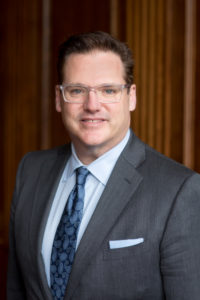Here’s How Governor Whitmer and the Legislature Can Help Communities in 2021
By: Dene Westbrook,
January 27, 2021

The Michigan Municipal League was honored to be asked to contribute to this series. Our CEO and Executive Director Dan Gilmartin penned a column explaining how state lawmakers can assist our cities, villages, and urban townships in emerging from the COVID-19 pandemic. You can read it at Crain’s here, but we’ve also pasted it below for your convenience.
You can also view the full series here. In addition, we had the creator of the series – Chad Livengood as a guest on our Monday Live with the League conversion and you can listen to that here as a podcast or watch it on our YouTube channel here. And you can watch the Governor’s State of the State Address here.
Here’s the column by Dan that appeared in Crain’s Detroit Business Sunday:
Business Recovery and Local Community Recovery Must Go Hand-in-Hand as We Emerge from COVID
As we embark on a new legislative session and prepare to hear from Governor Gretchen Whitmer in her annual State of the State address, the first priority is to ensure a strong recovery from the COVID-19 pandemic in ways that leave no one behind.
Communities large and small are the heartbeat of our state. They are where our families build memories and where local businesses thrive with support from residents and visitors. Communities are also where Michigan’s economic growth outlook hangs by a thread, and they must be a focus of the state’s COVID recovery planning.
The Michigan Municipal League urged state leaders in 2020 to adopt a Community Stabilization Plan that would have ensured our local governments were able to deliver core services that families and businesses need now and into the future. This plan recognized that municipalities are on the front lines of the pandemic response and are struggling to meet the demands placed on them.
Our communities entered the pandemic wounded by years of disinvestment by the state. The tax structure that raises the money to pay for police, parks and other important services is overly reliant on a property tax system that locks down revenue when times are bad and keeps it from rising with the economy when times are better. The 24 communities that charge an income tax are being hurt as employees increasingly work from home rather than in the communities where they would pay the tax.
The severity of this one-two punch of COVID-19 and decades of careless and compounding disinvestment cannot be overstated. The Treasury Department estimates Michigan’s 24 local income tax communities will lose up to $250 million in revenue this fiscal year alone. Vacant office space and closed businesses risk devaluing property, leading to drops in local property tax revenues. If the Community Stabilization Plan isn’t fully adopted, residents will feel unnecessary pain from the cuts their communities will be forced to make, undermining public safety and other critical services that families and businesses need for their livelihoods. At the extreme, local governments could once again face the appointment of emergency managers, or even worse, insolvency and bankruptcy.
It does not have to be this way. We have been here before. We can chart a new course.
Adopting the remaining components of the Community Stabilization Plan would address the unintended consequences of Michigan’s municipal finance policies, and it does so without raising taxes. An economic recovery plan that focuses on investing in our communities, their businesses and their people is how we will recover from this pandemic. Anything short of this all but guarantees more poverty and diminished quality of life for everyone.
Humans are social beings, and the pandemic has proven how important our social fabric is to our happiness. From the local restaurant, barber shop and beauty salon, school, sporting event, bike trail or park, the social interaction people crave is developed and nurtured in our cities and towns. Without the right supports, that social fabric will remain shredded and in tatters.
Happiness and commitment to an improved human experience is the bedrock of community wealth building and they need to be the cornerstone of our recovery. This effort begins by taking action that encourages a sense of trust and belonging in our communities. In partnership with policymakers, we can make strategic investments in our local public services that work for people and business.
To be competitive, our streets need fixing, our water systems need modernizing and high-speed broadband needs to be as commonly available as electricity.
Why should we settle for anything less?
Our governor and the Legislature have the power to breathe new life into the shared assets all of us use to support ourselves, our loved ones and our livelihoods.
An equitable rise from the pandemic demands our state leaders finally recognize the indispensable role community plays in our quality of life and, indeed, in the recovery from this tragedy.
Let’s not repeat the broken playbook state policymakers used to respond to the Great Recession. We know how that turned out. By adopting the Community Stabilization Plan, restoring investment, and focusing on a bold community wealth building agenda, your town, your family and our economy will bounce back and thrive together.
Dan Gilmartin
CEO and Executive Director
Michigan Municipal League
